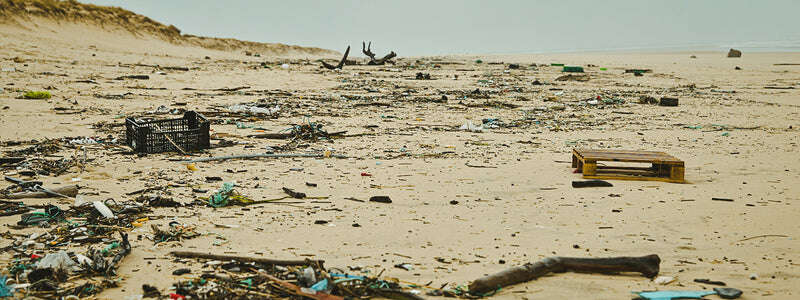We are eating our sweaters
Polyester clothing is making its way into our food
Gnarly but true. We are actually beginning to eat our plastic clothing. Here's why...
Polyester is one of the most prevalent fabrics in the fashion industry. Around 60% of all clothing made contains polyester as its cost and feel have beaten out cotton in the past decade to rule the industry.
Polyester is essentially plastic. It's a petroleum byproduct and it's often found in blends with cotton for t-shirts or solo in exercise and athletic apparel. I can almost guarantee if you stroll over to your closet right now, it won't take you long to find something made from polyester.
When you wash polyester clothing little plastic microfibres break away from the clothing. Each wash of a fleece sweater can shed up to 2 grams.
Since this happens in your washer these end up going down the drain and into the waste water. Which ends up eventually in the ocean.
This is expedited if you live somewhere like Victoria where we pump waste water literally right down the drain into the ocean only a few hundred yards away.
These tiny pieces of plastic debris make up 85% of human trash on shores around the world. Even worse, it's now appearing in our seafood. This has been proven by a handful of studies from people smarter than you and me. Here's one of them backing up my attempt at serious journalism here.
"If you're eating fish, you're eating plastic", quotes Greg Treinish, executive director of Adventure Scientists.
Thanks Greg.
Now, there's no proof that this causes health concerns in humans... yet. It's too early to tell. Greg says he'd rather not eat it for the next 30 years and find out he shouldn't. Fair enough Greg.
I'm not about to quit seafood with Greg, but there is no debate left on the fact that plastic is choking our oceans. So if there's something I can do about that - I'm in.
Enter the Cora Ball.
This little thing is part of the answer to the problem. Designed with the inspiration of a coral reefs ability to filter water through it catching tiny particles, the coral ball does exactly that in your washing machine.
What you end up with is all the fluff you can actually see and pick out to dispose of responsibly.
Get this, if 10% of North Americans use a Cora Ball in our laundry this year alone we can prevent the equivalent of over 30 million plastic water bottles entering the waterways.
The effects of this problem are pretty much as close to home as they come. As you probably know, every year we do beach clean ups in BC. Micro-plastics are by far the most prevalent thing we find and nearly impossible to clean up fully due to their size.
Learn more about the Cora Ball
and check one out right here.
Shot from our beach clean up neat Cape Scott last year.
It's notable to mention this whole issue was proven by Patagonia. Who totally shot themselves in the foot when releasing the study in 2017. They pegged their fleece garments as the worst offenders and have since pledged to find a solution. They haven't yet but you can help tackle the problem at home.





Leave a Comment